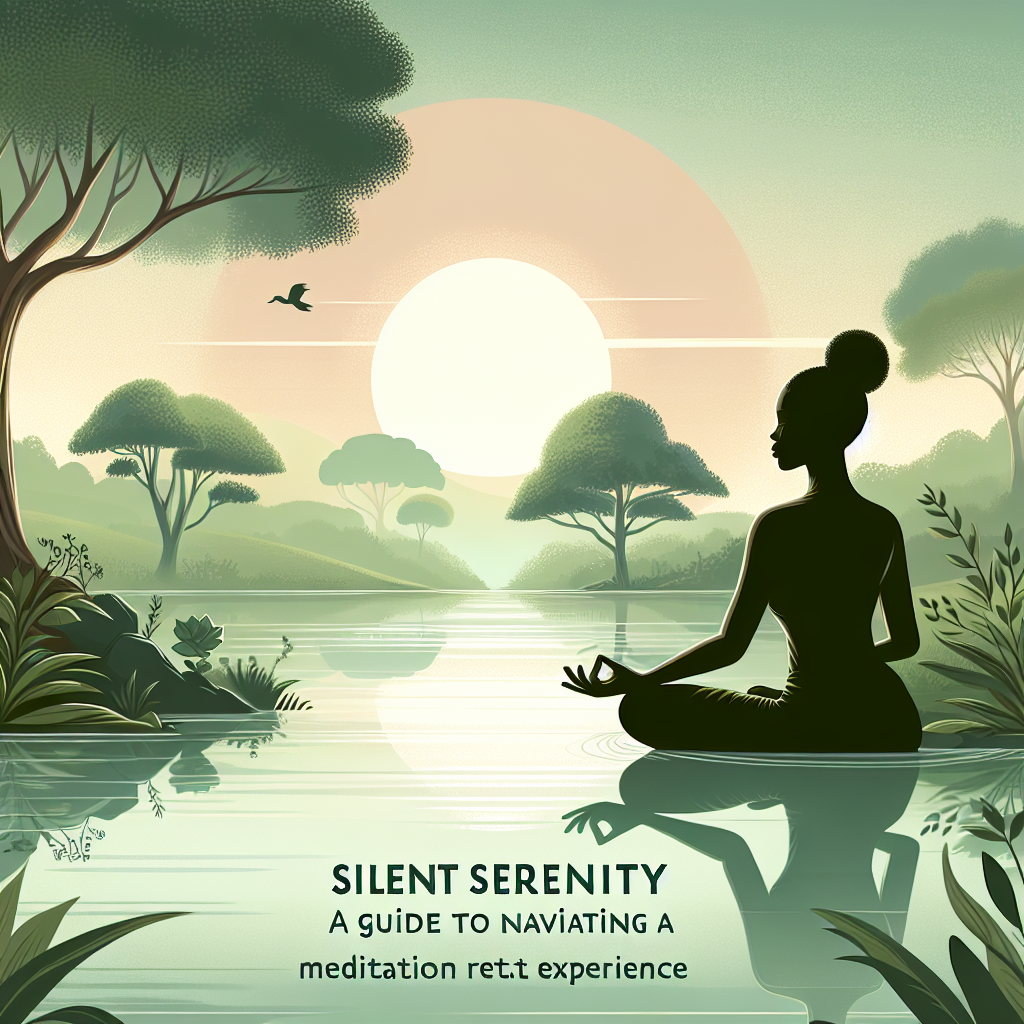Silent Serenity: A Guide to Navigating a meditation Retreat Experience
Meditation retreats have become increasingly popular in recent years as people seek ways to disconnect from the chaos of everyday life and find a sense of peace and serenity within themselves. These retreats offer a unique opportunity to dive deep into the practice of meditation, mindfulness, and self-reflection in a secluded and peaceful setting. However, embarking on a meditation retreat can be a daunting experience for those who are new to the practice. In this article, we will guide you through the process of preparing for and navigating a meditation retreat experience, so you can make the most of this transformative opportunity for self-discovery and inner growth.
Choosing the Right Retreat
The first step in embarking on a meditation retreat is to choose the right one for you. There are many different types of meditation retreats available, ranging from silent retreats to guided retreats, weekend retreats to month-long retreats, and retreats focused on specific practices such as Vipassana, Zen, or mindfulness meditation. Take the time to research different retreats and find one that aligns with your goals, preferences, and experience level.
Preparing for Your Retreat
Once you have chosen a meditation retreat that resonates with you, it is important to prepare yourself physically, mentally, and emotionally for the experience. Here are some tips to help you get ready:
1. Inform yourself about the retreat schedule, rules, and guidelines: Most meditation retreats have strict schedules, rules, and guidelines that participants are expected to follow. Make sure you familiarize yourself with these before you arrive so you can adhere to them during your retreat.
2. Practice meditation: If you are new to meditation, it can be helpful to start incorporating a regular meditation practice into your daily routine before the retreat. This will help you become more comfortable with the practice and deepen your experience during the retreat.
3. Pack mindfully: When packing for your retreat, be mindful of the items you bring with you. Most retreats have limited space and encourage participants to pack lightly. Consider leaving behind distractions such as electronic devices, books, and journals and focus on bringing only the essentials.
4. Set intentions: Before you embark on your retreat, take some time to reflect on your intentions and goals. What do you hope to gain from this experience? Setting clear intentions will help you stay focused and committed throughout the retreat.
Navigating Your Retreat Experience
Once you arrive at the meditation retreat, you may find yourself feeling overwhelmed or anxious about the experience ahead. Remember that these feelings are normal and part of the process of stepping outside of your comfort zone. Here are some tips to help you navigate your retreat experience with grace and ease:
1. Embrace the silence: Most meditation retreats operate on a principle of noble silence, which means refraining from speaking with others and engaging in unnecessary communication. Embrace this opportunity to turn inward and focus on your own thoughts, emotions, and experiences.
2. Stay present: One of the key principles of meditation is cultivating present moment awareness. Throughout your retreat, make an effort to stay present and fully engage with each moment as it arises. This will help you deepen your meditation practice and connect with your inner self.
3. Be kind to yourself: Meditation retreats can be intense and challenging experiences, both mentally and emotionally. Be gentle with yourself and practice self-compassion as you navigate through any difficulties or obstacles that may arise.
4. Connect with nature: Many meditation retreats are held in scenic and natural settings that provide a tranquil environment for inner reflection and contemplation. Take advantage of this opportunity to connect with nature and find inspiration and solace in the beauty of your surroundings.
FAQs
Q: How long should I stay on a meditation retreat?
A: The length of a meditation retreat can vary widely, ranging from a few days to several weeks or even months. It is important to choose a retreat length that aligns with your experience level, goals, and availability. If you are new to meditation, you may want to start with a shorter retreat and gradually work your way up to longer ones as you become more comfortable with the practice.
Q: Will I be required to meditate for long periods of time during the retreat?
A: Most meditation retreats do have a structured schedule that includes multiple meditation sessions throughout the day. The length and frequency of these sessions can vary depending on the retreat, but it is common for participants to meditate for several hours each day. While this may seem daunting at first, remember that meditation is a skill that can be developed over time, and you can always take breaks or adjust your practice to suit your needs.
Q: What should I do if I find the retreat experience overwhelming or challenging?
A: It is not uncommon to experience feelings of overwhelm or challenge during a meditation retreat, especially if you are new to the practice. If you find yourself struggling, remember to be kind to yourself and practice self-compassion. Reach out to the retreat facilitators or fellow participants for support and guidance, and consider taking breaks or engaging in self-care practices to help you navigate through difficult moments.
In conclusion, embarking on a meditation retreat can be a transformative and enriching experience that offers valuable insights and opportunities for self-discovery and growth. By choosing the right retreat, preparing yourself thoroughly, and navigating the experience with an open mind and heart, you can make the most of this unique opportunity to cultivate inner peace, serenity, and mindfulness in your life.




Leave A Comment